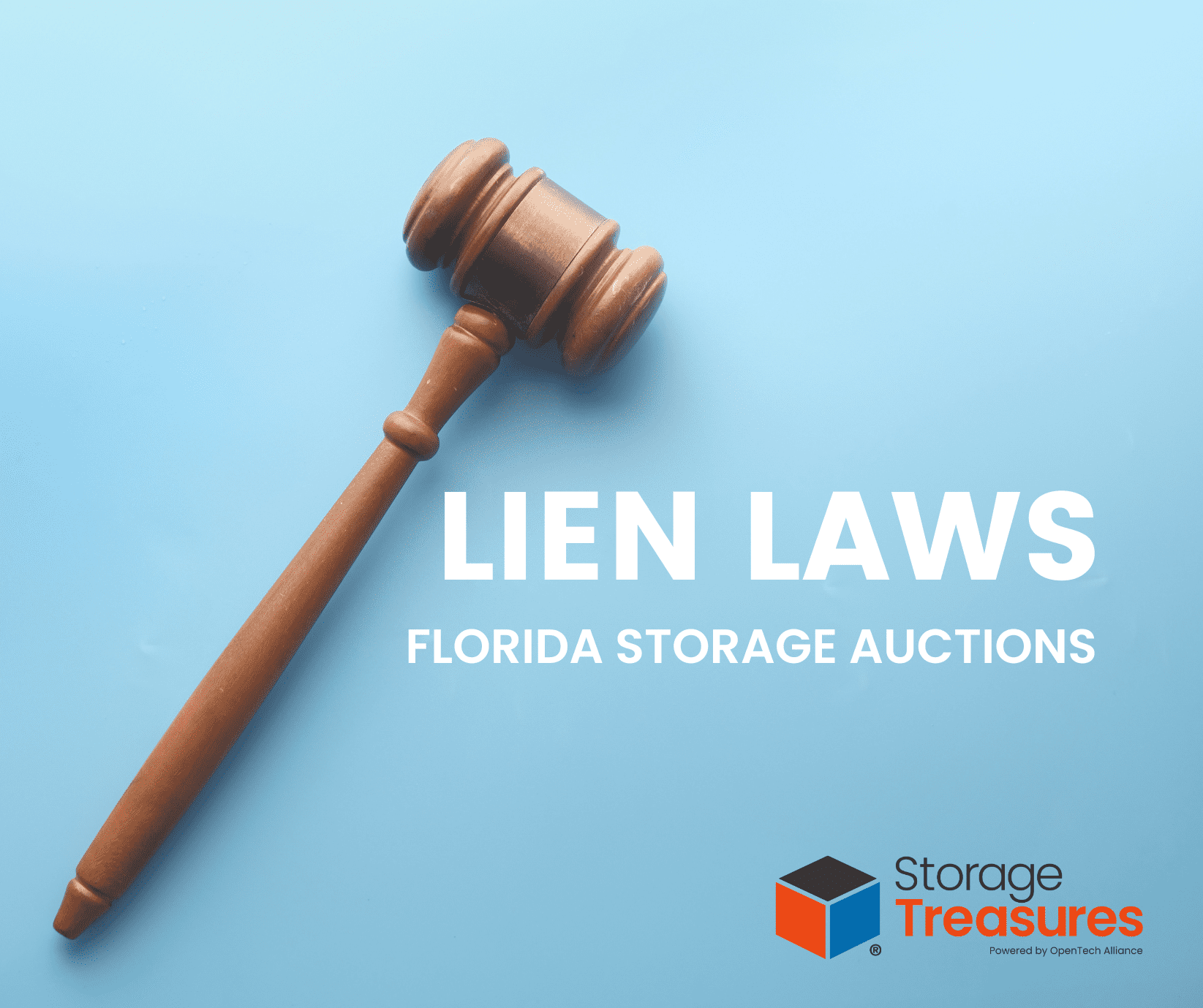Florida Storage Auctions: Stay Updated with the Latest Lien Law Developments
The landscape of lien laws is dynamic and subject to frequent updates and revisions. As the Florida storage auctions industry evolves and new challenges arise, legislators often amend these laws to address emerging issues and ensure fair and efficient practices. These changes can impact everything from the notification requirements for tenants to the timelines for auction proceedings. Storage operators must stay vigilant and keep abreast of the latest developments in lien laws to maintain compliance and effectively manage their facilities.
Florida storage auction lien laws have not had significant legislative changes since 2017. The changes included provisions for a late fee safe harbor, explicit online auctions, contractual value limitation, and towing motor vehicles. The Florida Self Storage Association, in conjunction with the National Self Storage Association, has made several efforts in recent years to remove the newspaper advertising requirement from the statute. Unfortunately, the newspaper lobbyists in Florida have a solid hold on the legislature, and legislation to change the legal ad requirements in Florida storage auctions has been deferred to the 2025 session. Florida self storage statutes are relatively straightforward to follow, you can find the latest Florida lien law here.
The Lien
The lien granted to you by Florida ss. 83.801-83.809 provides you with a lien to recover debts owed to you without judicial intervention. Removing delinquent tenants without going to court is unique to self storage. Storage operators are expected to follow the statute explicitly, given that they do not need to involve the courts.
The storage lien attaches the day the property is moved into the storage facility and is only superior to liens filed after it attaches. Any liens filed before the storage lien may have priority over the property or the proceeds from the property.
The statute says, “the owner must give notice to persons who hold perfected security interests under the Uniform Commercial Code in which the tenant is named as the debtor.” This statement means you need to do a Uniform Commercial Code search with the Secretary of State for every unit that goes into auction status. You can access the UCC Search Request here.
Denial of Access
The law says, “upon the failure of a tenant to pay the rent when it becomes due, the owner may, without notice, after 5 days from the date the rent is due, deny the tenant access to the personal property located in the self-service storage facility or self-contained storage unit.”
You can legally deny a delinquent tenant access to their property once rent has been unpaid for five days. The law also says you can deny them access to the property in the facility AND the storage space. This distinction gives you another level of protection if you decide to withhold gate access and overlock the unit. You must include the process for denying access in your rental agreement.
Notice of Lien
Your notice of lien is the letter that alerts your tenant to the upcoming auction. It must be sent via first class mail with a certificate of mailing, verified email, or delivered in person. The notice must include several required elements.
- An itemized statement of the amount owed and when the sums became due
- The same or reasonably similar description of the personal property provided in the rental agreement
- A demand for payment not less than 14 days after the date of the notice
- A CONSPICUOUS statement that the property will be advertised and sold unless the claim is paid within the time stated in the notice
- The name, street address, and telephone number of the person whom the tenant may contact to pay their bill
The notice is presumed delivered when it is deposited at the post office. For this reason, you must have proof of the date your letters were sent. Your certificate of mailing form should receive a red stamp.
Legal Advertisement
After the 14-day demand period provided in your letters has expired, you can run your first legal ad in a newspaper of general circulation in the legal notices section. A newspaper of general circulation is a legal term defined by the State of Florida. The newspaper you use to publish your legal ad should be able to provide you with documentation proving they qualify for the general circulation requirements.
The legal ad must include the following items:
- The same or reasonably similar description of the personal property provided in the rental agreement
- The address of the self storage facility
- The tenant’s name
- The time, place, and manner of sale
The ad should be published once a week for two consecutive weeks. Typically, operators post the two ads precisely seven days apart. The lien sale cannot occur until at least 15 days after publishing the first ad.
Excess Sale Proceeds
If the unit sells for more than your tenant owes, you must give the excess proceeds to the tenant. You must send them a notice of excess proceeds, sometimes called a demand and release letter. This letter should be sent by first-class mail with a certificate of mailing. You should also send the notice of excess proceeds to known lien holders. The tenant or the lien holder has two years to claim the excess proceeds.
Motor Vehicles
Florida storage auctions have clear procedures for selling motor vehicles at a self storage lien sale. There are many steps the self storage operator must take, but a sale is possible. The only major caveat to vehicle sales in Florida is you cannot sell a vehicle with an active lien holder at a self storage lien sale.
Fortunately, you also have the option to have vehicles towed once the tenant has reached 60 days past due. If you plan to have vehicles towed off your property, it is a good idea to establish a relationship with a tow company in your area. They may require you to have their signs posted on the property before they will remove the vehicle.
You can find instructions for selling vehicles in the FL TL-28 here.







